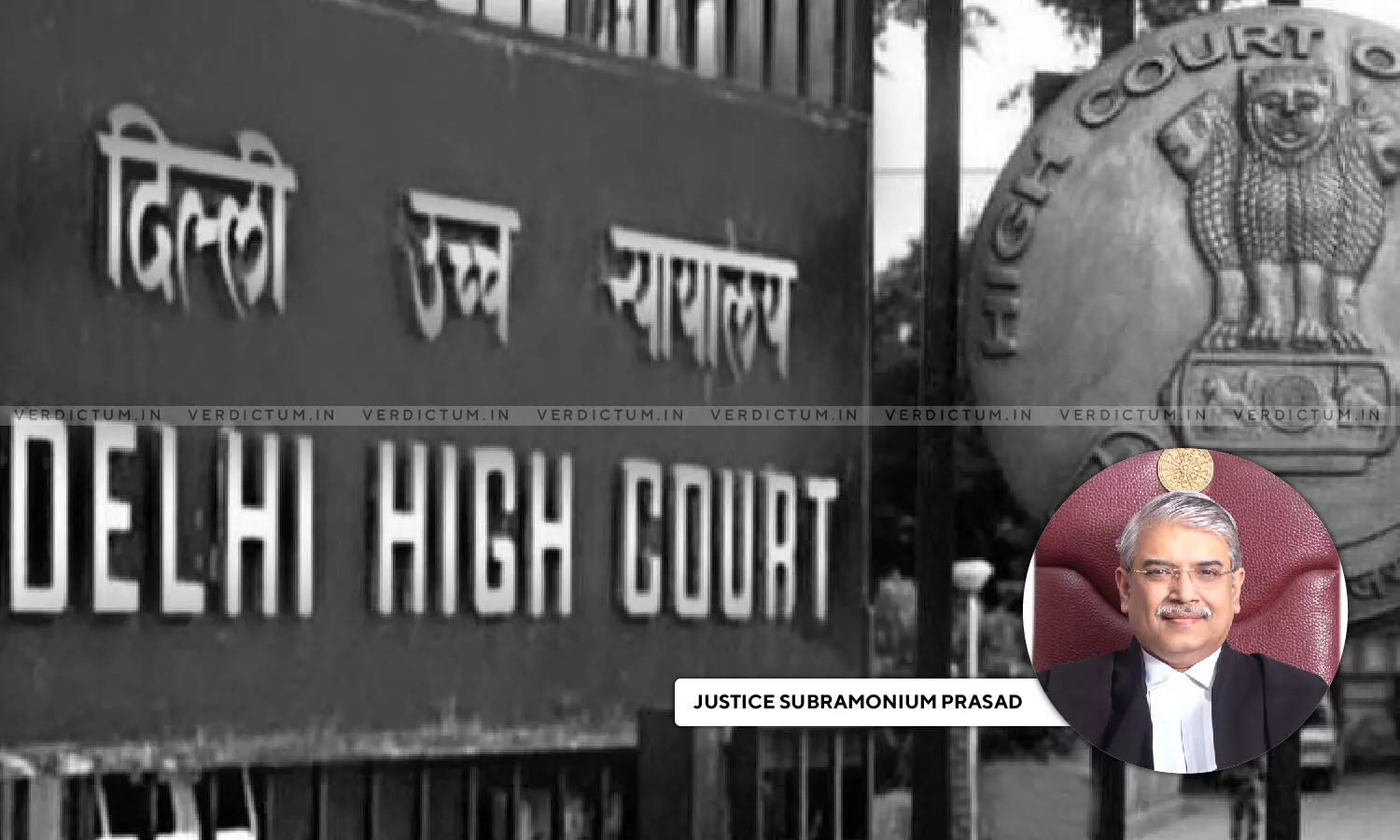
Principle Of Non-Interference In Arbitral Proceedings Is Fundamental To Both Domestic As Well As International Commercial Arbitration: Delhi HC
 |
|The Delhi High Court observed that the principle of judicial non-interference in arbitral proceedings is fundamental to both domestic as well as international commercial arbitration.
The Court was hearing an Arbitration Petition under Section 11(5) of the Arbitration and Conciliation Act, 1996 seeking the appointment of a Sole Arbitrator for the adjudication of disputes.
The bench of Justice Subramonium Prasad observed, “…principle of judicial non-interference in arbitral proceedings is fundamental to both domestic as well as international commercial arbitration and that the Arbitration Act is itself contained code.”
Advocate Jyoti Nambiar appeared for the Appellant and Advocate Anil Kumar Singh appeared for the Respondent.
Brief Facts-
The Petitioner claimed that the Respondents sold and transferred a 300-square-yard industrial plot through an Agreement to Sell and related documents, as registration of a sale deed was not permissible at the time. The plot, initially allotted to the respondents, was sold to the Petitioner within six months. However, the original plot was later withdrawn and replaced with a different Khasra number. The Petitioner discovered someone else in possession of the plot, and when approached for compensation, the Respondent denied executing the agreement. After sending a legal notice, which the Respondents contested, the Petitioner filed a Court petition seeking the appointment of a Sole Arbitrator to resolve the dispute.
The Court relied on the decision of the Supreme Court in SBI General Insurance Co. Ltd. vs. Krish Spinning, 2024 and quoted, “By referring disputes to arbitration and appointing an arbitrator by exercise of the powers under Section 11, the referral court upholds and gives effect to the original understanding of the contracting parties that the specified disputes shall be resolved by arbitration. Mere appointment of the arbitral tribunal doesn't in any way mean that the referral court is diluting the sanctity of “accord and satisfaction” or is allowing the claimant to walk back on its contractual undertaking.”
Accordingly, the Court disposed of the Petition.